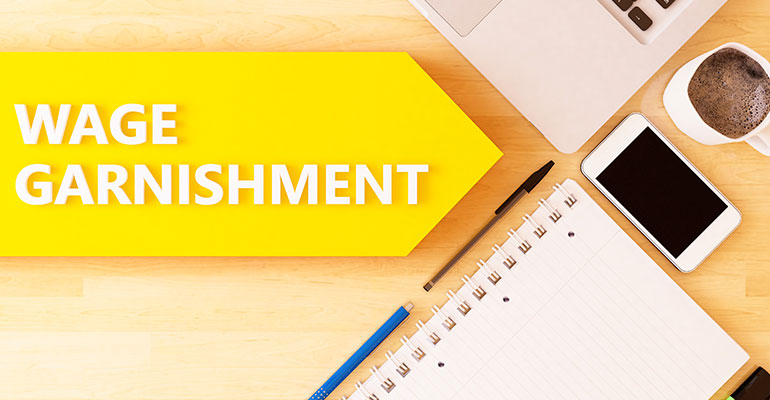
Wage garnishment is a legal process that allows a creditor to take a portion of an individual’s paycheck to repay a debt. While wage garnishment can be a difficult and stressful experience, understanding how long it lasts can help individuals prepare and manage their finances. In this post, we’ll explore the various factors that determine the length of wage garnishment and what individuals can do to end it.
Duration of a Wage Garnishment
Typically, wage garnishment continues until the debt is repaid, settled, or until the court issues a stop order. The length of a wage garnishment varies depending on the type of debt, the amount owed, and state laws, among other things.
Types of Debts
Different types of debts have different rules and regulations regarding wage garnishment. For instance, federal law limits wage garnishment for consumer debts such as credit card debts and medical bills to 25% of the debtor’s disposable income. However, wage garnishment for child support and alimony may be as high as 50% of disposable income.
Amount Owed
The amount owed also plays a role in determining how long a wage garnishment lasts. If the debt is small, it may be paid off quickly, and the garnishment will end. However, if the debt is large, it may take a significant amount of time to pay it off, resulting in a longer wage garnishment period.
State Laws
Each state has its own laws regarding wage garnishment. Some states have more restrictive laws that limit the amount of wages that can be garnished, while others allow creditors to garnish a higher percentage of wages. Additionally, some states have a shorter statute of limitations for wage garnishment, meaning that the creditor has a limited amount of time to initiate the process.
Negotiation and Settlement
Individuals facing wage garnishment may be able to negotiate a settlement with the creditor. In some cases, the creditor may be willing to accept a lump sum payment or a payment plan that is less than the total amount owed. This can be a way to end wage garnishment and resolve the debt.
Bankruptcy
Filing for bankruptcy can also stop wage garnishment. When an individual files for bankruptcy, an automatic stay is put in place that prevents creditors from pursuing collection actions, including wage garnishment. However, filing for bankruptcy is a significant decision and should be carefully considered with the help of a qualified bankruptcy attorney.
Financial Hardship
In some cases, individuals facing wage garnishment may be able to demonstrate financial hardship. This could include unexpected medical expenses, job loss, or other financial difficulties that make it challenging to meet basic living expenses. In such cases, the court may reduce or stop the wage garnishment to allow the debtor to get back on their feet.
Timing of Payments
The length of wage garnishment can be influenced by the timing of payments. If the debtor consistently makes payments on time, the debt will be paid off faster, and the wage garnishment will end sooner. However, if payments are sporadic or inconsistent, the garnishment may last longer.
Employment Status
If the debtor changes employment or becomes unemployed, this can also impact the length of wage garnishment. For instance, if the debtor loses their job, the creditor may need to seek a new wage garnishment order from the court, which can take time. Additionally, if the debtor changes jobs and earns a different salary, this may impact the number of wages that can be garnished.
Multiple Garnishments
In some cases, a debtor may have multiple wage garnishments from different creditors. If this is the case, the total amount that can be garnished cannot exceed the maximum allowed by law. Therefore, the length of wage garnishment may depend on the priority of each creditor and the total amount of debt owed.
Interest and Fees
When a creditor initiates a wage garnishment, they may also add interest and fees to the debt. This can increase the amount owed and extend the length of wage garnishment. However, it’s important for debtors to check that the interest and fees are legal and reasonable and to seek legal advice if necessary.
Wage Garnishment Order
The length of wage garnishment can also be impacted by the timing of the wage garnishment order. If the creditor obtains the wage garnishment order early in the debt collection process, the garnishment may last longer. However, if the order is obtained later in the process, it may be closer to the end of the debt, resulting in a shorter garnishment period.
Payment Amounts
The amount of the payments may also affect how long the garnishment lasts. The debt will be repaid more quickly, and the wage garnishment will end sooner if the debtor pays more than is necessary. The garnishment could last longer if the debtor only makes the minimum payments, though.
Type of Employment
The type of employment can also impact the length of wage garnishment. For instance, if the debtor is self-employed, the creditor may need to seek a different type of garnishment order, which can be more time-consuming. Additionally, if the debtor works in a job where their income fluctuates, this can impact the number of wages that can be garnished.
Garnishment Exemptions
Certain types of income may be exempt from wage garnishments, such as Social Security benefits, disability payments, and some types of retirement income. If the debtor has these types of income, this can impact the length of wage garnishment and reduce the total amount that can be garnished.
Wage garnishment can be a stressful and challenging experience, but understanding how long it lasts and what factors influence its duration can help individuals manage their finances and work toward resolving debt. By negotiating a settlement, filing for bankruptcy, demonstrating financial hardship, and making timely payments, individuals can take steps to end wage garnishment and move toward financial stability.
